METAPHORS WE LIVE BY
METAPHORS
We Live By
GEORGE LAKOFF and MARK JOHNSON

The University of Chicago Press
Chicago and London
The University of Chicago Press, Chicago, 60637
The University of Chicago Press, Ltd., London
1980 by The University of Chicago
Afterword 2003 by The University of Chicago
All rights reserved. Published 2003
Printed in the United States of America
12 11 10 09 08 5
ISBN: 0-226-46801-1 (paperback)
Library of Congress Cataloging-in-Publication Data
Lakoff, George.
Metaphors we live by / George Lakoff and Mark Johnson.
p. cm.
Originally published: Chicago : University of Chicago
Press, 1980.
Includes bibliographical references.ISBN 0-226-46801-1 (pbk. : alk. paper)1. Language and languagesPhilosophy. 2. Metaphor. 3. Concepts. 4. Truth. I. Johnson, Mark, 1949-II. Title.
P106 .L235 2003
401dc21
2003044774
 The paper used in this publication meets the minimum requirements of the American National Standard for Information SciencesPermanence of Paper for Printed Library Materials. ANSI Z39.481992.
The paper used in this publication meets the minimum requirements of the American National Standard for Information SciencesPermanence of Paper for Printed Library Materials. ANSI Z39.481992.
Much of the material in all or parts of chapters 1 through 5, 9 through 12, 14, 18, and 21 originally appeared in the article "Conceptual Metaphor in Everyday Language, " Journal of Philosophy 77, no. 8 (August 1980) : 453-86, and is reprinted here with the kind permission of the editors of the Journal of Philosophy.
For Andy and The Gherkin
Contents
Preface
This book grew out of a concern, on both our parts, with how people understand their language and their experience. When we first met, in early January 1979, we found that we shared, also, a sense that the dominant views on meaning in Western philosophy and linguistics are inadequatethat "meaning" in these traditions has very little to do with what people find meaningful in their lives.
We were brought together by a joint interest in metaphor. Mark had found that most traditional philosophical views permit metaphor little, if any, role in understanding our world and ourselves. George had discovered linguistic evidence showing that metaphor is pervasive in everyday language and thoughtevidence that did not fit any contemporary Anglo-American theory of meaning within either linguistics or philosophy. Metaphor has traditionally been viewed in both fields as a matter of peripheral interest. We shared the intuition that it is, instead, a matter of central concern, perhaps the key to giving an adequate account of understanding.
Shortly after we met, we decided to collaborate on what we thought would be a brief paper giving some linguistic evidence to point up shortcomings in recent theories of meaning. Within a week we discovered that certain assumptions of contemporary philosophy and linguistics that have been taken for granted within the Western tradition since the Greeks precluded us from even raising the kind of issues we wanted to address. The problem was not one of extending or patching up some existing theory of meaning but of revising central assumptions in the Western philosophical tradition. In particular, this meant rejecting the possibility of any objective or absolute truth and a host of related assumptions. It also meant supplying an alternative account in which human experience and understanding, rather than objective truth, played the central role. In the process, we have worked out elements of an experientialist approach, not only to issues of language, truth, and understanding but to questions about the meaningfulness of our everyday experience.
Berkeley California
July 1, 1979
Acknowledgments
Ideas don't come out of thin air. The general ideas in this book represent a synthesis of various intellectual traditions and show the influence of our teachers, colleagues, students, and friends. In addition, many specific ideas have come from discussions with literally hundreds of people. We cannot adequately acknowledge all of the traditions and people to whom we are indebted. All we can do is to list some of them and hope that the rest will know who they are and that we appreciate them. The following are among the sources of our general ideas.
John Robert Ross and Ted Cohen have shaped our ideas about linguistics, philosophy, and life in a great many ways.
Pete Becker and Charlotte Linde have given us an appreciation for the way people create coherence in their lives.
Charles Fillmore's work on frame semantics, Terry Winograd's ideas about knowledge-representation systems, and Roger Schank's conception of scripts provided the basis for George's original conception of linguistic gestalts, which we have generalized to experiential gestalts.
Our views about family resemblances, the prototype theory of categorization, and fuzziness in categorization come from Ludwig Wittgenstein, Eleanor Rosch, Lotfi Zadeh, and Joseph Goguen.
Our observations about how a language can reflect the conceptual system of its speakers derive in great part from the work of Edward Sapir, Benjamin Lee Whorf, and others who have worked in that tradition.
Our ideas about the relationship between metaphor and ritual derive from the anthropological tradition of Bronislaw Malinowski, Claude Lvi-Strauss, Victor Turner, Clifford Geertz, and others.
Our ideas about the way our conceptual system is shaped by our constant successful functioning in the physical and cultural environment come partly from the tradition of research in human development begun by Jean Piaget and partly from the tradition in ecological psychology growing out of the work of J. J. Gibson and James Jenkins, particularly as represented in the work of Robert Shaw, Michael Turvey, and others.
Our views about the nature of the human sciences have been significantly influenced by Paul Ricoeur, Robert McCauley, and the Continental tradition in philosophy.
Sandra McMorris Johnson, James Melchert, Newton and Helen Harrison, and David and Ellie Antin have enabled us to see the common thread in aesthetic experience and other aspects of our experience.
Don Arbitblit has focused our attention on the political and economic implications of our ideas.
Y. C. Chiang has allowed us to see the relationship between bodily experience and modes of viewing oneself and the world.
We also owe a very important debt to those contemporary figures who have worked out in great detail the philosophical ideas we are reacting against. We respect the work of Richard Montague, Saul Kripke, David Lewis, Donald Davidson, and others as important contributions to the traditional Western conceptions of meaning and truth. It is their clarification of these traditional philosophical concepts that has enabled us to see where we diverge from the tradition and where we preserve elements of it.
Our claims rest largely on the evidence of linguistic examples. Many if not most of these have come out of discussions with colleagues, students, and friends. John Robert Ross, in particular, has provided a steady stream of examples via phone calls and postcards. The bulk of the examples in chapters 16 and 17 came from Claudia Brug-man, who also gave us invaluable assistance in the prepara-tion of the manuscript. Other examples have come from Don Arbitblit, George Bergman, Dwight Bolinger, Ann Borkin, Matthew Bronson, Clifford Hill, D. K. Houlgate III, Dennis Love, Tom Mandel, John Manley-Buser, Monica Macauley, James D. McCawley, William Nagy, Reza Nilipoor, Geoff Nunberg, Margaret Rader, Michael Reddy, Ron Silliman, Eve Sweetser, Marta Tobey, Karl Zimmer, as well as various students at the University of California, Berkeley, and at the San Francisco Art Institute.
Next page
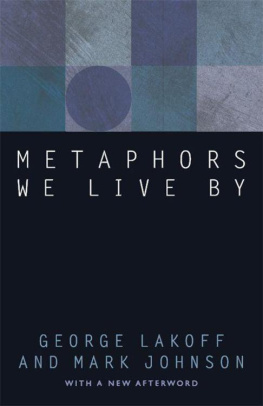

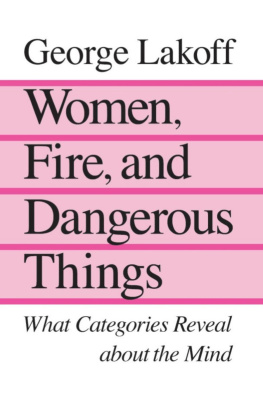

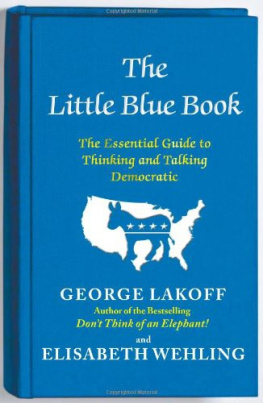
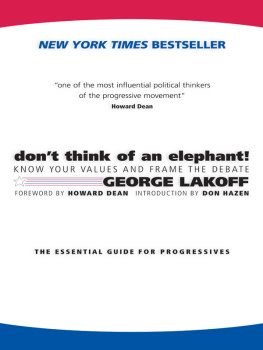
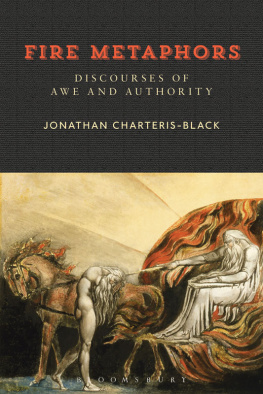
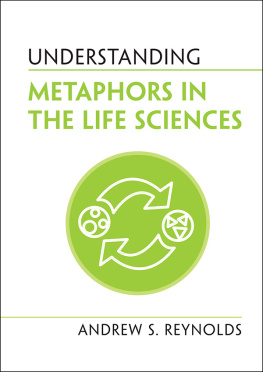
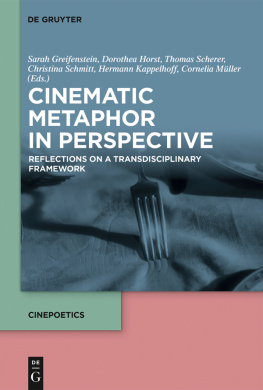
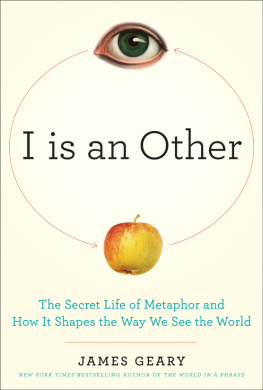
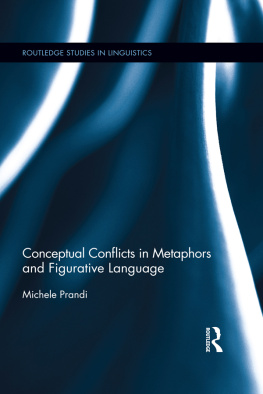
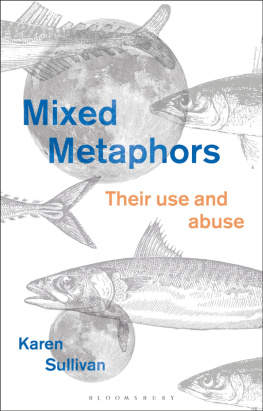

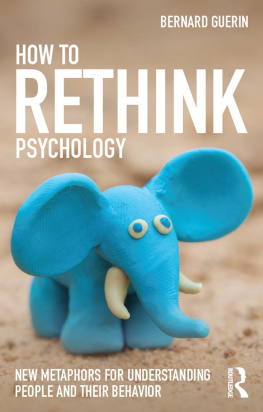
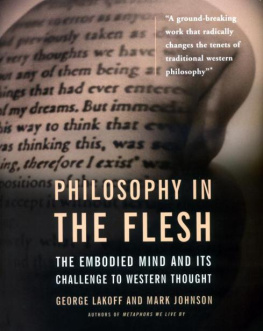

 The paper used in this publication meets the minimum requirements of the American National Standard for Information SciencesPermanence of Paper for Printed Library Materials. ANSI Z39.481992.
The paper used in this publication meets the minimum requirements of the American National Standard for Information SciencesPermanence of Paper for Printed Library Materials. ANSI Z39.481992.